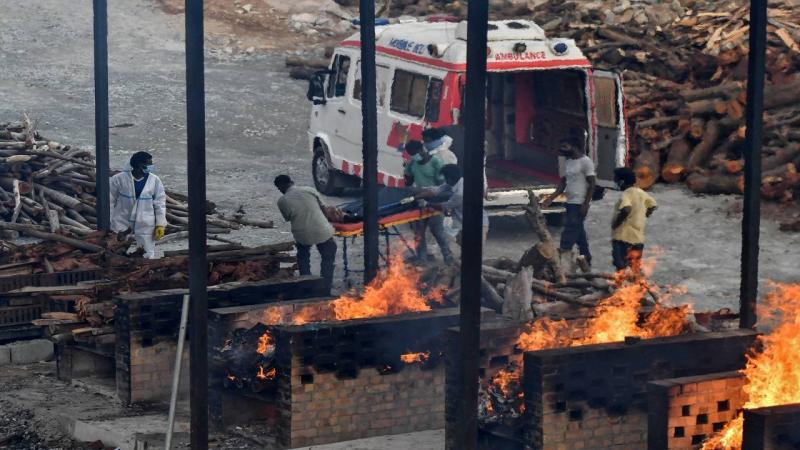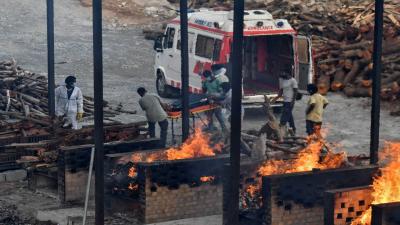Doctors had just announced improvements in the health of Parvesh Dubey, who was hospitalized for black fungus in Madhya Pradesh when his family learned of his death due to this frightening illness that invaded his brain. Parvesh Dubey was thirty-three years old and appeared to be recovering from COVID-19, which was the initial reason for his hospitalization, but his condition suddenly worsened. A relative, who asked to remain anonymous, said, "We transferred him (to another hospital), where the doctors performed surgery on his nose and cheek. One of his eyes was damaged, and the doctors were trying to save the other." They added, "We lost him within a week. We did everything we could."
As India faces a fierce second wave of the coronavirus, it now has to contend with black fungus, a fungal infection that typically only occurs in rare cases under normal circumstances, but has begun to spread at an alarming rate, particularly among those who have recovered from COVID-19 and entered the recovery phase. The spread of this infection has escalated to the extent that at least nine states classified it as an epidemic on Thursday. On social media, requests for assistance in obtaining antifungal treatment continue.
The state of Maharashtra alone reported over two thousand cases, while Gujarat reported about 1,200 cases. Delhi, Bangalore, and Bombay have not escaped this disease and have opened specialized centers for patients. Indian media reports that black fungus has claimed the lives of hundreds within a few days. Among the initial symptoms of this disease, the US Centers for Disease Control and Prevention mentions headache, facial swelling, and fever, while the mortality rate among affected individuals exceeds 54%.
Increased Steroid Use
Before the second wave of COVID that killed a hundred thousand people last month in India, cases of black fungus were rare in the country. Those affected were often patients with diabetes or HIV, had undergone transplants, or suffered from weakened immune systems. The country continues to record high COVID infection numbers, reaching 259,551 new cases and 4,209 deaths in a 24-hour period, according to Thursday's tally.
Experts, including Professor K. Srinath Reddy from the Public Health Foundation of India, state that the rapid spread of black fungus is largely attributed to the overuse of steroids in treating coronavirus patients. "They have been used uncontrolled, in excessive and inappropriate amounts," he said, adding that contaminated water in oxygen cylinders or humidifiers also provides an opportunity for fungi to enter the body.
After about twelve days of steroid treatment, Paritben Shah, a COVID patient, complained of severe headaches that ordinary painkillers did not relieve. A few days later, the pain became unbearable, and her eye swelled, as her son recalls. Smit Shah told AFP, "An MRI revealed a spot, but it was not clear that it was black fungus. However, we admitted her to the hospital shortly thereafter." A biopsy confirmed the infection. Smit also turned to social media to look for antifungals to save his mother, but to no avail.
Desperation for Medication
Families of patients often seek doses of the antifungal drug Amphotericin B, which the Indian health minister announced would have its production increased. However, some blame state and federal authorities, stating they should have evaluated the risks and taken appropriate action since the first reported cases emerged several months ago. Among them is Amulya Nidhi, a health rights activist in Madhya Pradesh, who says that the crisis of shortages of antiviral medications and plasma for treating COVID patients has not been learned from. She adds, "People shouldn't have to plead for essential medicines that could save their loved ones."




